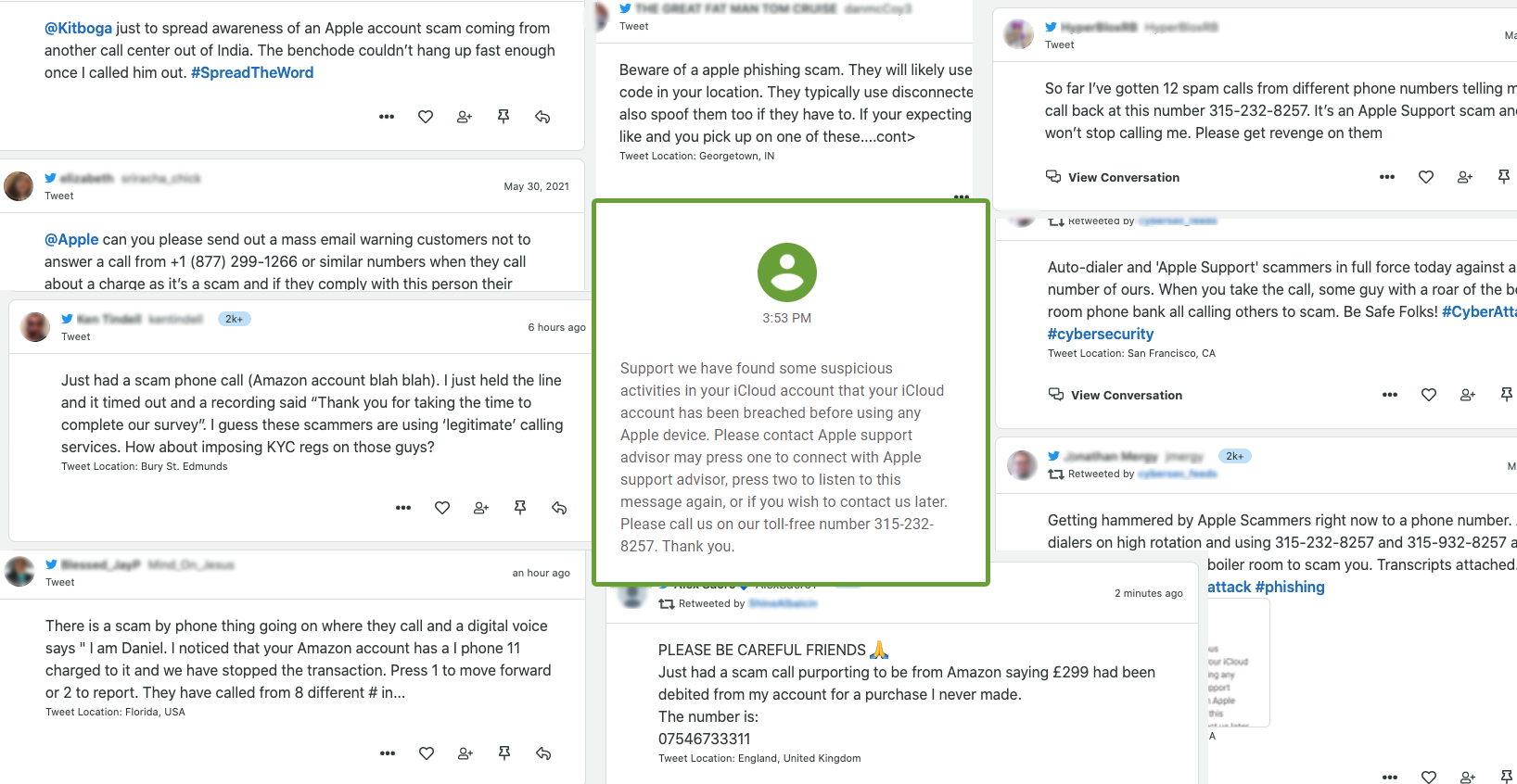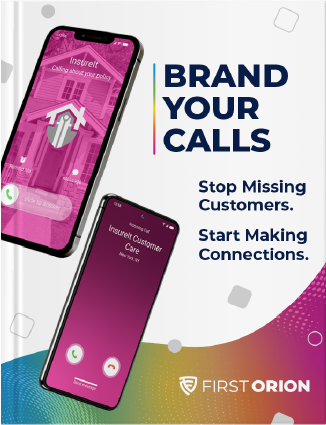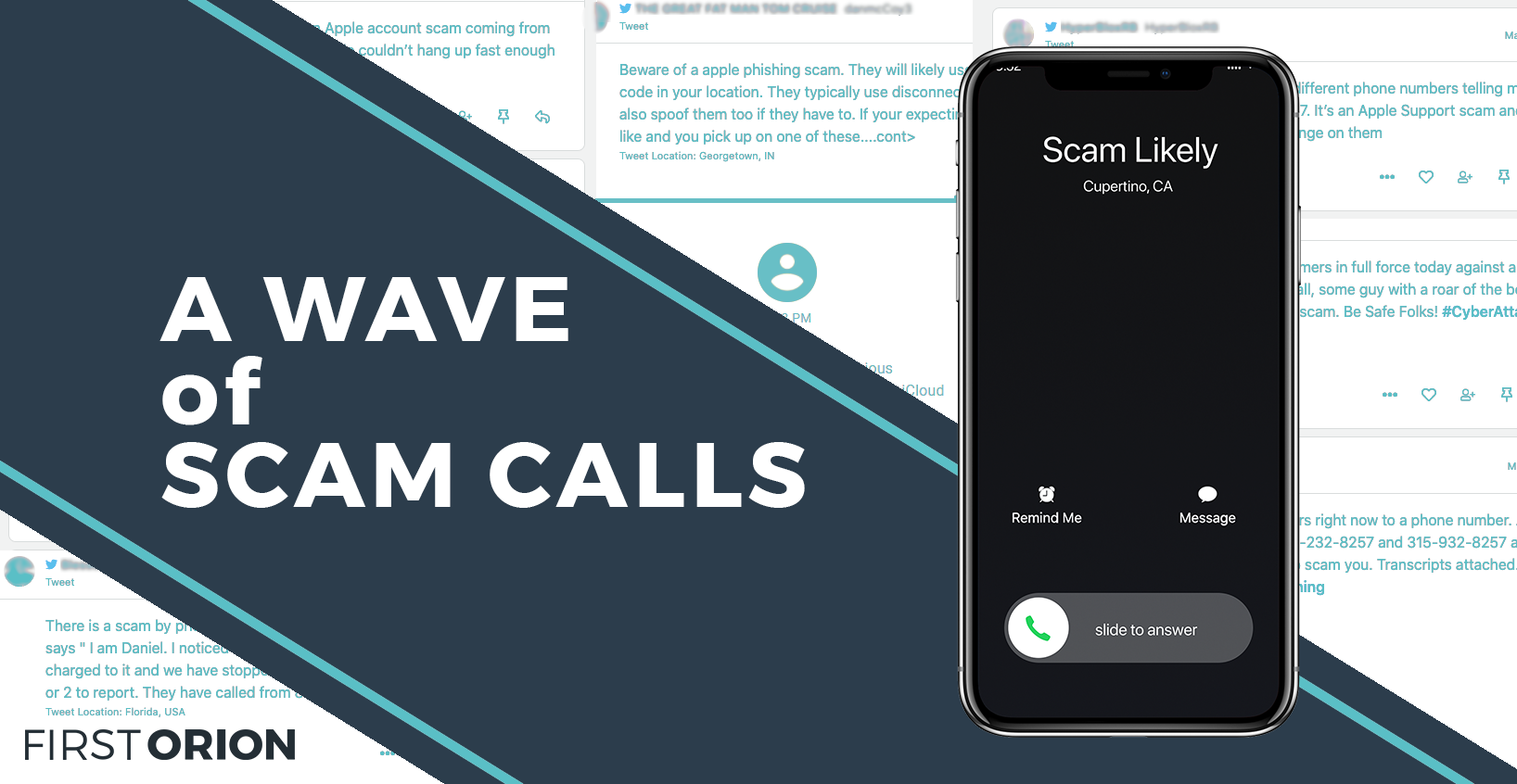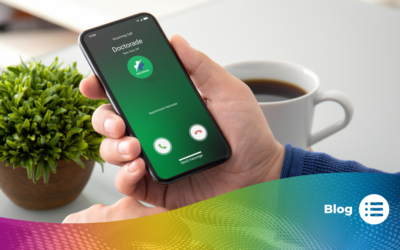One scam call is annoying – but twenty or more bombarding your phone? That’s enough to make you throw your phone out of a moving car.
In Fresno, CA, a man reported to KMPH an incident in which he received repeated scam calls for nearly two hours – 27 scam calls total, every five minutes. The scam calls, which reported that his Apple account had “unusual activity,” weren’t an isolated incident; after scanning social media, the man discovered there were hundreds of others receiving a constant stream of calls from scammers claiming to be Amazon or Apple.

Earlier this year, a Kansas City woman said scammers called her more than 25 times, leaving 18 messages, all with the same recording about her iCloud account being hacked. The first six numbers calling were identical, but the last four digits on each call varied each time. The red flag for her? She’s never owned any Apple or iCloud products.
The premise of this scam call isn’t a new one – the FTC issued an alert in December 2020 about fake calls from Amazon and Apple support. In one version of the scam, the message says there’s something wrong with your account, like a suspicious purchase, lost package, or order they’re unable to fulfill. Another suggests there’s been suspicious activity on your Apple iCloud account. Conveniently, both ask you to “press 1” to speak with someone or give you a phone number to resolve the problem – which is when they try to steal your personal info, like account passwords or credit card numbers.
For most scammers, the aim of the game is to make as many calls as possible in hopes of catching one victim. But a wave of constant scam calls isn’t necessarily part of the strategy – our data scientists confirmed that scammers are still human, and this particular incident was likely a mistake. Our theory? It was probably an input error, in which the scammer reused the same number repeatedly instead of moving on to the following number, resulting in the overwhelming barrage of calls.
There are a few ways to stop scam calls like these – instead of blocking number by number, an app like PrivacyStar allows you to block entire area codes if it differs from yours. PrivacyStar also tags potential threats as “Scam Likely,” with the option to block those calls or send them directly to voicemail. Certain carriers like T-Mobile and Metro offer free protection services, which can alert users to scam and help them block those calls at a network level.
While the FTC continually works to fight fraud and scams, they also rely on reports from consumers to track these destructive calls. Report a scam or unwanted call on their website to help them with their investigations.




